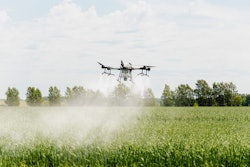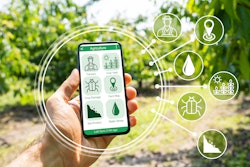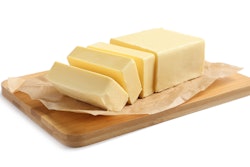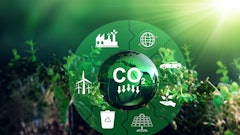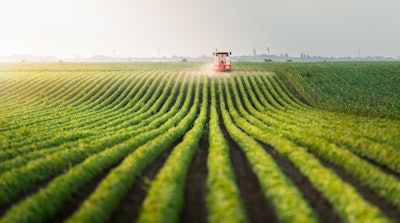
The true value of water is difficult to grasp because water, unlike oil, is rarely treated as a commodity and traded in the marketplace. Nevertheless, due to its finitude, water is, without question, one of the most precious resources on the planet. As such, it is paramount that businesses, particularly those in agriculture, one of the largest water-consuming sectors in the U.S. economy, strive to conserve water. Of course, effectively managing water usage is not without its challenges.
Water management challenges
Water waste represents a significant cost for the agriculture industry. These water-related costs can be even more expensive in geographic areas that experience water supply pressures. Leaky pipes are the bane of any farmer, racking up considerable costs, and if the waste is severe enough, regulatory fines. At the same time, water leaks, broken sprinklers or any other faulty or damaged machines and equipment will hinder uptime and decrease productivity. Farmers expect their irrigation systems to be up and running when necessary, and any unplanned disruption can be disastrous – especially during production season.
Without the proper monitoring technology, a farmer might not notice a leak until it has already wasted a considerable amount of water. Farmers require real-time and historical data to maximize the productivity and uptime of all irrigation equipment. They also need visibility and status reports of the operational health of their equipment, systems and pipelines to catch issues before they snowball into serious problems that could cause extensive damage, expensive repairs or lengthy downtime. Nevertheless, manually examining irrigation systems for such problems is time-consuming.
Considering these challenges, adoption of smart farming techniques such as smart irrigation and precision agriculture, powered by Internet of Things (IoT) devices, sensors, modules and software, is on the rise. With these smart farming solutions, farmers gain the data-driven insights they need to conserve water, minimize runoff and soil erosion and improve crop yields, equating to greater cost savings, maximized productivity and better environmental stewardship.
Smart irrigation
Smart irrigation systems leverage connected, sensor-based water monitoring and management technologies. The real-time water data generated by these remote sensors enables farmers to make more informed decisions to optimize water usage. These insights also help them prevent water misuse and underutilization; moreover, having extensive analytics allows farmers to precisely manage irrigation to keep up with demand while conserving water. Likewise, by deploying IoT devices that monitor soil moisture, farmers can more accurately schedule irrigation and prevent overwatering. These sustainable practices not only benefit the environment, decreasing, for example, the rate of groundwater withdrawal, but also increase profitability.
Similarly, smart irrigation systems can trigger actions based on sensor data, automatically switching off water during a leak. IoT sensors can detect pipeline leaks and other faults, permitting farmers to address these issues quickly. With IoT technologies, farmers can automate and streamline routine leak inspection processes.
Another benefit of smart irrigation management solutions is that they help farmers improve crop yields through greater efficiency and consistency. Smart water sensors allow farmers to track changing environmental conditions, such as temperature and rainfall, to ensure irrigation scheduling is optimized. Smart water management technologies can measure and monitor soil moisture levels and even trigger sprinkler systems to activate automatically should soil moisture levels become too low, avoiding crop damage or loss.
Precision farming
Much like smart irrigation, precision agriculture uses IoT devices, sensor data and network communication to observe, measure and respond in real-time to variables, enhancing farming processes for better water preservation. For example, farmers can use precision agriculture applications to capture data from IoT sensors to track weather trends and soil conditions to determine when to plant, water and harvest, conserving water and increasing crop yields. Likewise, connected devices can detect water and nutrient deficits for timely interventions, thus minimizing crop and resource waste.
Maximizing irrigation equipment productivity and uptime is a major water conservation challenge. IoT-powered precision farming solutions allow farmers to monitor the operational health of their machines and vehicles. They can also set up automatic alerts to detect issues with their irrigation equipment, such as low oil pressure, high engine temperature or – most importantly – water leaks. Likewise, IoT sensors give farmers instant access to other variables like location and status, ensuring that equipment is where it needs to be and operating as required.
The necessity of connectivity in smart agriculture
Despite the economic and environmental benefits of smart irrigation and precision agriculture, the lack of connectivity, can be a barrier to adoption. Smart farming depends on wireless technologies, like cellular LPWA and 4G, Wi-Fi and Bluetooth, to collect and analyze data generated by connected IoT devices. Therefore, farmers that prioritize smart agriculture solutions with reliable connectivity capabilities will experience better and more consistent water conservation efforts.




